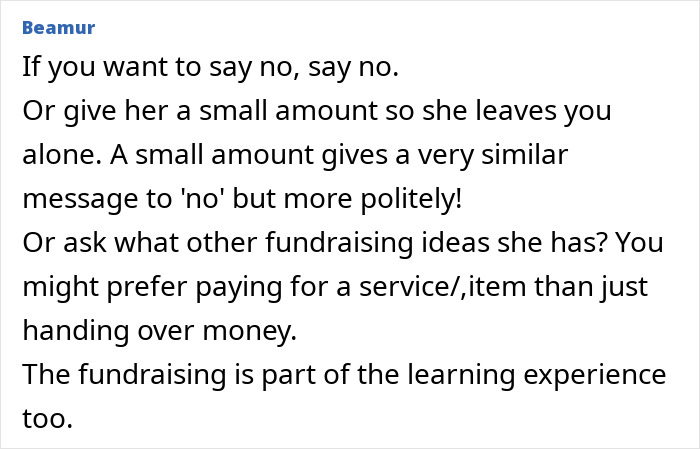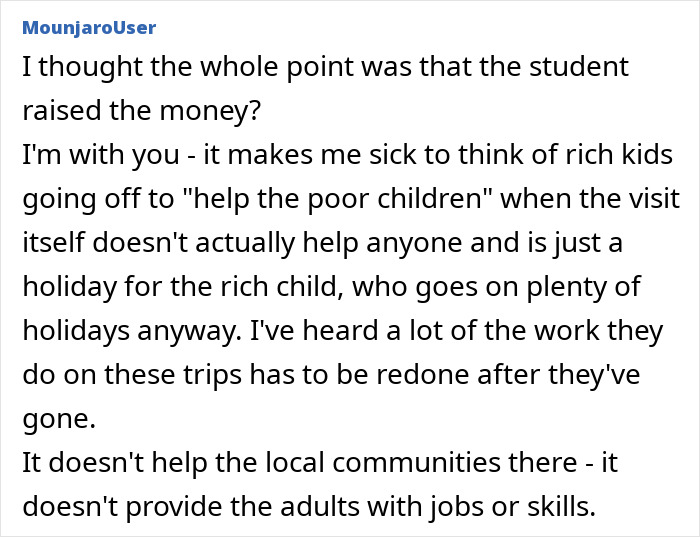We want to get along with our colleagues. After all, few things drain you as much as unnecessary drama.
However, a person who goes by Ved on the forum Mumsnet fears they have no choice but to confront one of their co-workers. The issue? Relentless begging for donations to a fundraiser.
A woman that Ved works with wants to send her daughter on a trip to Africa, but since it costs a lot of money, the mom is asking others to contribute. And as the deadline approaches, she’s getting increasingly pushy.
Parents want the best for their kids, but their enthusiasm can sometimes come across as pushy or excessive

Especially when they want others to contribute to their child’s success









Rejection is part of raising funds

Image credits:maitree rimthong (not the actual photo)
It sounds like the woman might think her cause is compelling enough to warrant repeated requests for donations, even at the risk of annoying other people.
But Judith Martin, aka Miss Manners, who was awarded the United States National Humanities Medal for her contributions to society as America’s foremost etiquette columnist and author, does not believe that a noble goal excuses rude behavior.
“It is indeed a common fundraising technique to work the embarrassment that people might feel when refusing friends and colleagues, among whom they live and work (and who are likely familiar with their financial capabilities),” she writes.
“Even generous philanthropists do not enjoy social pressure. And at what cost, financially? Those who contribute only as a favor to you, rather than from genuine interest, might then reasonably expect you to contribute equally to their favorite charities.”
She is not alone.
Neon One is a company that provides software solutions tailored for nonprofits to help them manage fundraising, donor relationships, events, and other administrative tasks.
According to their experts, not every request results in a donation, and people trying to raise funds should understand that rejection is a natural part of the process, as well as an opportunity to learn.
If someone declines to give, they say, you should respond graciously and thank them for considering your request, not continue bombarding them with messages, trying to change their mind.
As the story went viral, its author provided more information in the comments

People who have read the story believe the mom is out of line























